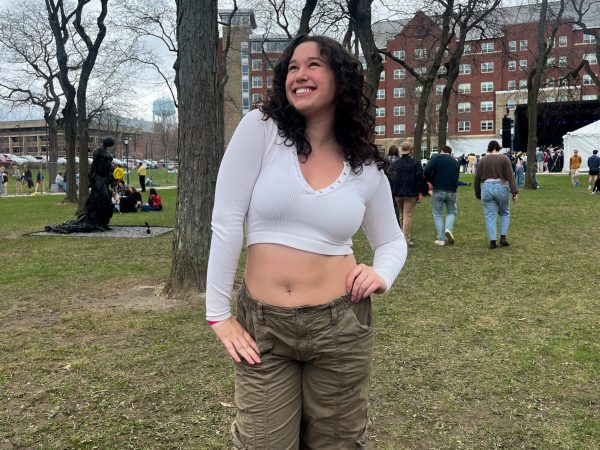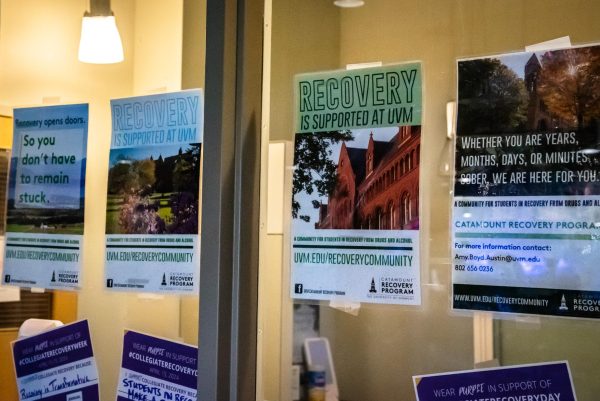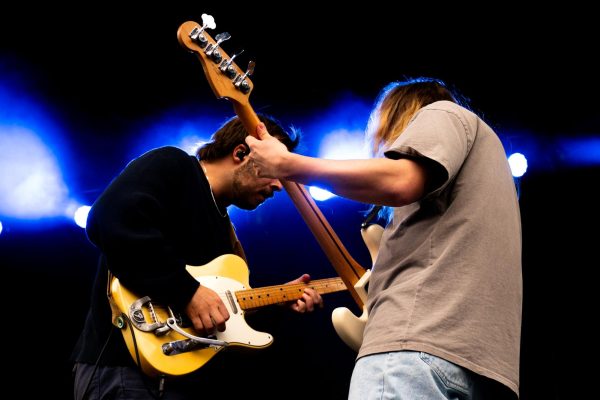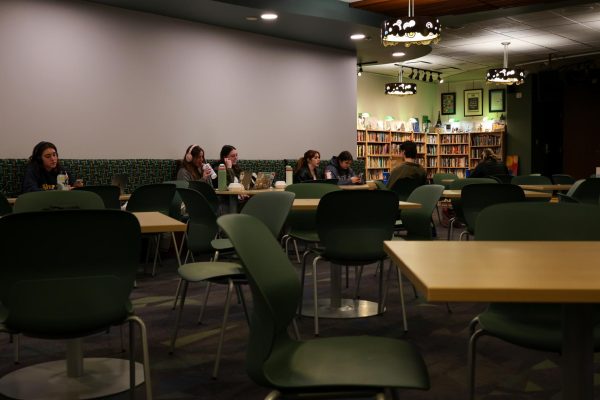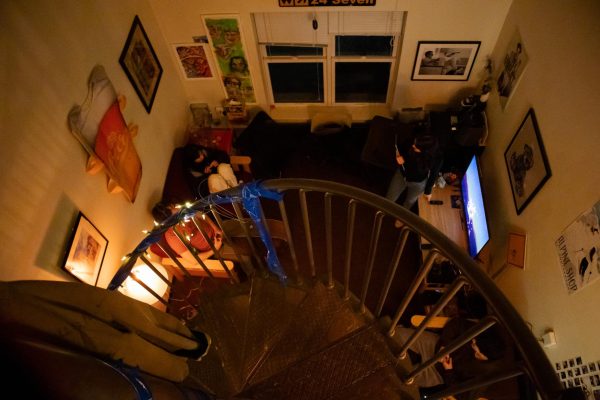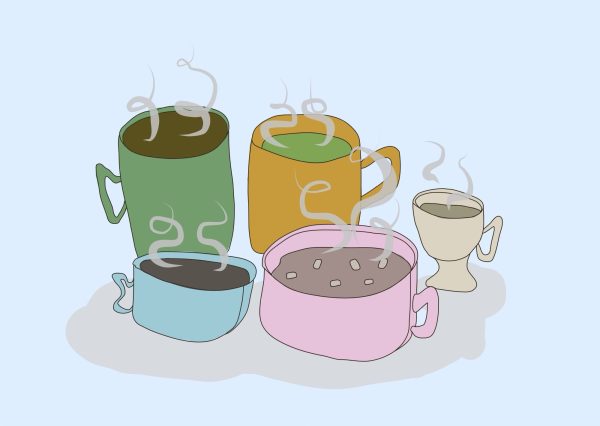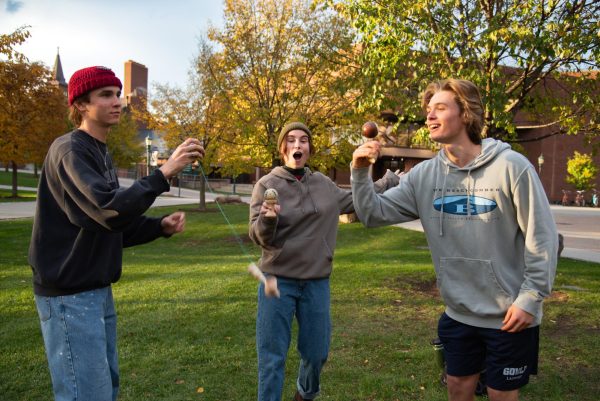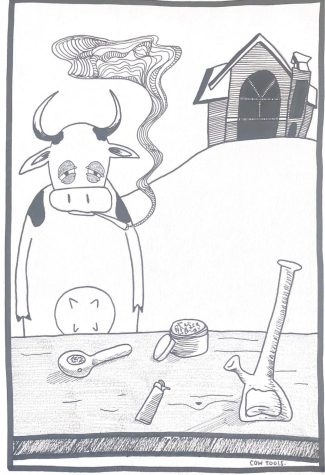A look at dating culture in COVID-19
April 2, 2021
I met the love of my life during a global pandemic.
My boyfriend and I met on Tinder. An app I used to love to make fun of and “swipe” on cute guys with my roommates.
We hit it off immediately and after texting for about a week, the chemistry was so strong we said, “screw it” and decided we wanted to meet up.
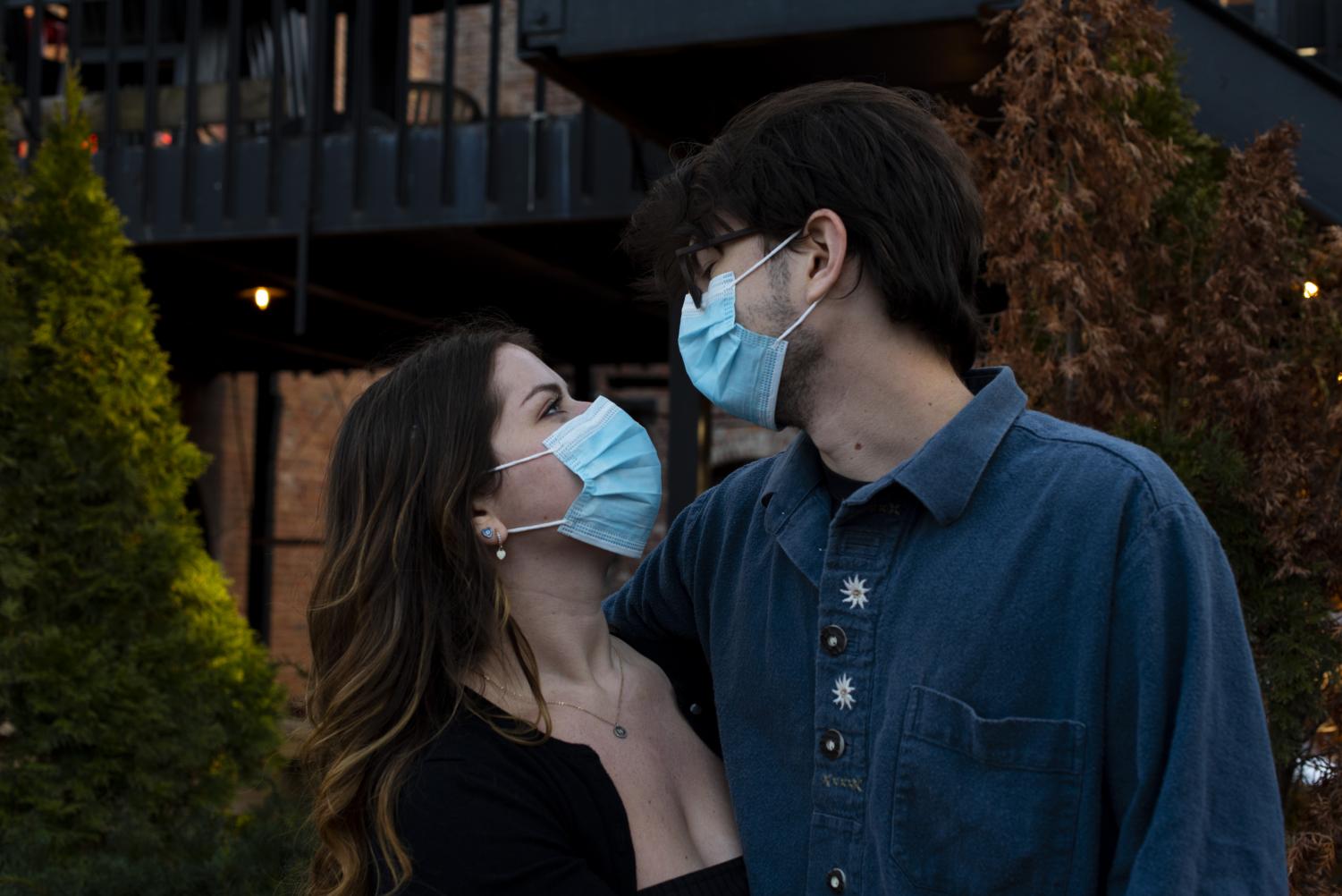
Looking back on it, we were not being safe. We met up at a restaurant indoors and never once questioned if the other might be sick. Neither of us were getting regularly tested at the time and had been hanging out with our separate friend groups.
Thankfully, neither of us got sick, made the other sick or made our friends sick, but that, sadly, is not common.
One message that’s been consistent from the Center for Disease Control is to keep six feet of distance between yourself and people that don’t live in your household. We most definitely were not doing that.
Now, seven months later, I couldn’t be happier and I am grateful I went out that night to meet him. But I’m one of the lucky ones. I remembered how it felt, especially at the beginning of quarantine, to not feel connected to anyone and not being able to do anything about it.
I wanted to see if others felt the same way.
In an anonymous survey, The Cynic asked students several different questions about aspects of dating life during COVID-19.
According to the students responses, 78.3% of participants have felt lonelier due to COVID-19.
This figure is unsurprising. There’s an array of different aspects that are contributing to loneliness right now, such as physical isolation, 6-feet distancing, etc.
According to UVM’s Health and Sexuality Educator Jenna Emerson, not being able to go out and make connections, whether they’re long term or not, has definitely had a huge influence on people’s mental health and general wellbeing.
Emerson said this pandemic is affecting all single people, not just college students, and it’s hurting our basic human needs.
“Ultimately we do need human connection, we do need relationships, we’re social beings,” Emerson said.
According to the survey, 78.3% of respondents said they believed it has been harder to meet people since COVID-19 began to spread.
Social gatherings like parties and bar settings or being under the influence of alcohol helped dating in the past as it eased awkwardness, tension and skipped any part of being vulnerable with another, Emerson said.
“Dating with COVID takes a lot of vulnerability or empathy which a lot of people aren’t interested in or just don’t have,” said Emerson “Not a lot of honest conversations happen before hooking up in the past, now you’re required to have so much communication.”
In a COVID-19 conscious dating world, long-term talking and discussion of the virus and risks associated with contact is a lot more common, and an aspect of dating we were not familiar with in the past.
But are there other ways to meet people and socialize other than breathing on each other at Akes’ Place. You would think that an alternative way to do this would be to be active on dating apps. Well, you’d be right!
The survey indicates a dramatic upsurge in the use of dating apps. More than 73% of respondents said they have used dating apps during COVID-19.
Almost half of the participants, 43.5%, said they use the apps more than before COVID-19 and 34.8% said they used it the same as before.
“I feel like [the pandemic] helped normalize dating apps like Tinder, a sort of ‘what else are you supposed to do to meet people?’ sentiment,” a student participant stated.
People also don’t seem to want to utilize COVID-19 friendly forms of dating like Facetime, calling or Zoom. Only 23.9% of the survey respondents said they have used them for dating since the pandemic started. Meaning, all the rest are meeting in person.
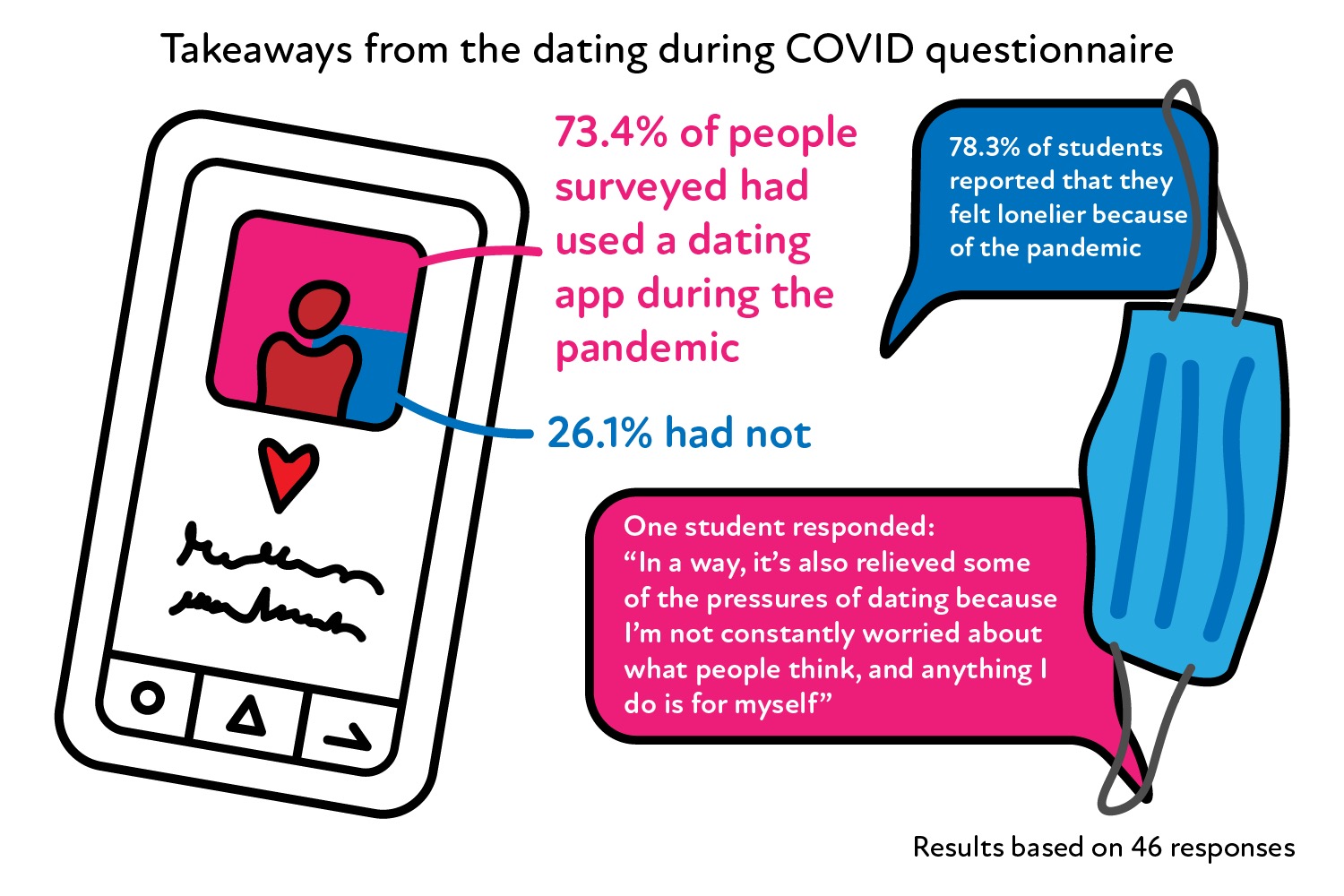
Alternatively, 67.4% of respondents said fear of contracting and or giving COVID-19 has stopped them from meeting up in person with potential interests.
“Dating before COVID was very spontaneous, now it’s really hard,” Emerson said. “A lot of people want to have instant gratification: ‘I have a desire. I want to act on that desire.’”
Some might think there are safe ways to meet someone in person.
“Mainly meeting mutual friends that are within circles that I know are getting tested as much as I am,” one participant stated.
UVM students are lucky in the sense that we are tested often and may know our results before meeting someone, but it still isn’t necessarily a safe way to go about the situation, certainly not in the eyes of the CDC.
A notable majority of respondents, 60.9%, noted that dating or meeting potential dates during COVID-19 has not been going well, including the one person who said it was “ass.” Sorry buddy. Another said they’ve stopped caring.
“You can’t hug your friends, can’t hang out with them, we’re losing literal face-to-face connection,” Emerson said. “It’s really hard because as a survival technique people are saying ‘I’m not going to date right now.’”
Whether it’s a survival technique during this scary time or part of a bigger crisis of intimacy and connection, it’s apparent dating has not been going well for a majority of people.
At the end of the survey, we gave participants a chance to tell their own story and write in responses. Here’s what some of them had to say:
“It’s hard seeing my friends develop relationships during COVID-19. It makes me jealous but I’m also too worried about spreading it,” one participant stated.
One user noted that dating online is difficult as you have to rely on a person’s internet presence as the basis of your perception of them.
Other students noted that with the loss of dating-related distractions, there is more time for personal care.
“It’s extremely hard for people who are COVID-conscious, and the pandemic has kind of exasperated feelings of inadequacy, which is like a black hole,” the respondent stated. “In a way, it’s also relieved some of the pressures of dating because I’m not constantly worried about what people think, and anything I do is for myself.”
Emerson said that she suggests we use this time to “start dating ourselves,” and that using this period of loneliness for self-care and discovery will set us up for success in the future with dating, under the shadow of COVID-19 or not.
And no, self-dating is not just buying yourself some flowers or chocolate and getting on with your day…although sometimes that is nice.
“[Dating during COVID-19] requires a certain amount of emotional vulnerability you actually gain if you spend more time with yourself,” Emerson said. “The better you are at loving yourself, talking to yourself, having sex with yourself, the better you will be in a relationship, this is all opportunity.”
Emerson said self-dating is centered around learning to be the person you want to be, and want to be with. If you want to be with the person that you’re dreaming of, you have to become the person of your dreams.
There’s no need to wait around.
And yes, Emerson thinks you should start masturbating more. By developing self-dating practices, those that are feeling lonely can find fulfillment without another, she said.
The sad truth is, I don’t have an answer to these problems and concerns. We’re in the middle of a pandemic and staying safe and healthy is the main priority. I’m lucky to be with my boyfriend through all of this.
However, I do urge people to stay in the dating scene and not give up on others or themselves.
My advice: Stay on apps. Keep talking safely. Keep trying to better yourselves and do good for others.
Someone will come along even if it’s during not this pandemic. You never know who might be on the other side of a screen.








